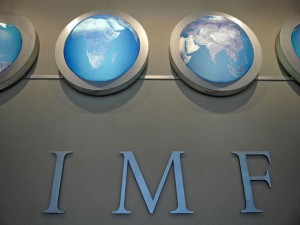As we head into tomorrow, a day of reckoning may be upon the world’s financial system as both Greece and the Troika reach a deadline for coming up with a solution to the Greek debt problem. And at stake could be much more than just the fate of the Greek people, with a triggering of a derivative death spiral that could make 2008 look like a small drop in the bucket.
Bill Holter: Greek Default to Trigger 48-Hour Global Meltdown
In the following interview (click on link), precious metals analyst Bill Holter discusses the ramifications of a Greek default, and lays out the scenario where a collapse of their sovereign bonds could instantly trigger a complete global meltdown of the banking and financial system within the next 48 hours.
In addition to tomorrow’s final meeting between the Troika and Greece, Greek banks may either way be forced to declare a bank holiday after billions of dollars have been removed from these institutions over the past two weeks.
With just under 24 hours until Monday’s final summit after which even JPMorgan now agrees the ECB will be forced to use a nuclear option and limit or cut Greek ELA thus imposing capital controls as a “negotiating tactic”, earlier today both France and Germany told Greece it must have a reform deal agreement with the Troika finalized and delivered before a crucial leaders’ summit between Athens and its creditors on Monday; in other words before trading opens on Monday.
According to the FT, with the Greek cabinet meeting on Sunday to consider compromise proposals, François Hollande and Angela Merkel both telephoned Alexis Tsipras, the prime minister, to remind him he needed a “staff level” agreement with the European Commission, IMF and ECB ahead of the summit. - Zerohedge
To this point, the IMF and ECB have refused to budge on Greek reform proposals, and it is unlikely that an agreement will be reached without Greece putting pension funds and payments under some form of austerity. This of course would lead to massive civil unrest, and escalate the problem from not just a financial crisis, but into a political one as well.
However, what is a wildcard in all of this is Russia’s involvement with Greece, and the new pipeline agreement they signed last Friday at the St. Petersburg Economic Forum. This pact has provided Greece with $2 billion up front, with a promise of more should Prime Minister Alexis Tsipris decide to spurn the EU and move into the BRICS and EEU camps.
RT: Western media are speculating that Greece is after a loan from Russia in exchange for a promise to block the extension of EU sanctions. Is there any truth to those claims?
AD: There are many countries in Europe that want sanctions to be lifted as soon as possible, and Greece is among them. I think those countries are thinking about business, about their own economies, not about politics and we believe it is a constructive approach. So we now have more intensive consultations with those countries than with European majors who don’t want to continue economic dialogue at this point. - Russia Today
Whatever comes of this important meeting tomorrow, the die has been cast for a paradigm shift in both the Eurozone, and the future of the global financial system. And it will be interesting to see how both the U.S. and Russia will attempt to use this crisis for their advantage in the days and weeks ahead.
Kenneth Schortgen Jr is a writer for Secretsofthefed.com, Examiner.com, Roguemoney.net, and To the Death Media, and hosts the popular web blog, The Daily Economist. Ken can also be heard Wednesday afternoons giving an weekly economic report on the Angel Clark radio show.
Don't miss these
- Non Gamstop Casinos UK
- Best Casino Not On Gamstop
- Siti Sicuri Non Aams
- Casinos Not On Gamstop
- Casino Not On Gamstop
- Casino Online Stranieri Non Aams
- Non Gamstop Casino
- Sites Not On Gamstop
- Non Gamstop Casino UK
- Slots Not On Gamstop
- Casino En Ligne
- Casino En Ligne
- Casino En Ligne France
- 信用 できるオンラインカジノ
- UK Casino Not On Gamstop
- Casinos Not On Gamstop
- Casino Online Non Aams
- I Migliori Casino Non Aams
- Siti Casino Online Non Aams
- Non Gamstop Casino Sites UK
- Casino En Ligne Fiable
- Best Non Gamstop Casinos
- Non Gamstop Casino
- Betting Sites UK
- Casino Non Aams
- Crypto Casino
- Meilleur Casino En Ligne Français
- Casinos Belgique
- Casino Online
- Paris Sportif Ufc
- オンラインカジノ 出金早い
- KYC 없는 카지노
- казино онлайн
- Migliori Siti Scommesse
- Casino Online
- Casino En Ligne Fiable
- Casino En Ligne 2026
- Nouveau Casino En Ligne France
- Casino En Ligne
